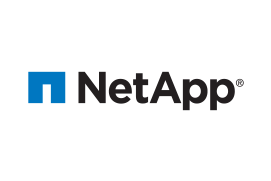Episode 6: Data Portability Across the Hybrid Cloud
In this episode, KJ Burke and Chris Maki from CDW and Kirk Kern, CTO, NetApp Americas discuss data and process gravity, how it drives business value, as well as how NetApp’s data fabric supports data portability.
Featured in this Episode
KJ Burke is an innovative and driven IT infrastructure architect with solid interpersonal and communication skills. He is currently the Principal Technology Strategist at CDW Canada, with over 20 years in the IT industry and plenty of experience in planning and deploying technology to improve business processes and drive measurable value.
Chris Maki has been working in IT for 23 years and can speak to most levels of the IT infrastructure stack. His focus is on data centre infrastructure, both traditional and hybrid cloud. Chris also specializes in all things NetApp and is one of the original members, and the only Canadian member, of the NetApp A-Team.
Kirk Kern is NetApp’s CTO for Americas and leads a team of Deputy CTOs in the Office of Technology and Strategy. He is responsible for developing strategies, solution architectures and partner initiatives for customers across the Americas, resulting in secure and scalable data services for hybrid cloud or traditional IT environments. His current research explores applied use cases for machine learning and AI for data management systems.
In this episode, we discuss…
- The difference between data gravity and data inertia
- How data can be moved across clouds, and from on-premises to the cloud
- Why having a solid data fabric helps empower businesses and adds business value
- How to change data from being a business detractor to a business enabler
- How to address security in the cloud while keeping data portable
- How NetApp is embracing containers and the open-source community
- The direction of data across the hybrid cloud, AIOps and NetApp’s focus for the next five years
Findings from our Cloud Report
Organizations will invest in analytics, cloud and artificial intelligence (AI)/machine learning (ML) to ensure reliable digital services and experiences.
As of 2020, one in three Canadian organizations had an edge computing strategy.




